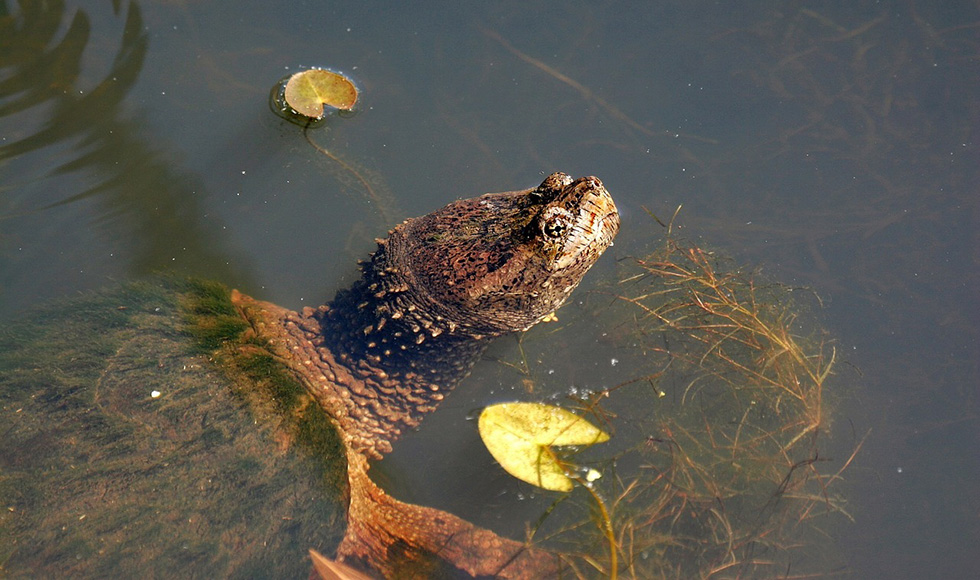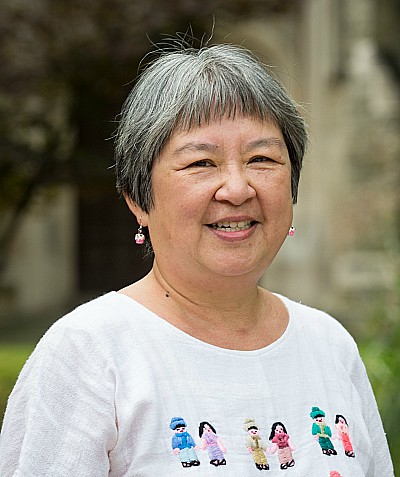Understanding and preserving some of Canada’s most delicate aquatic ecosystems

BY Erica Balch
March 22, 2018
McMaster researcher, Pat Chow-Fraser was giving a talk in Duluth, Minnesota when a cottager, who had driven all the way down from Thunder Bay, asked to meet with her. He was concerned about the expansion of a trailer park that was threatening a wetland on the northern coast of Lake Superior and had come to ask for her help.
“He needed my research to fight the expansion,” says Chow-Fraser, a professor in McMaster’s Department of Biology and an expert in the health of aquatic ecosystems. “It was a site we had been planning to sample, but he told me I needed to get there now, before they started to develop the wetland.”
Over the next two summers, Chow-Fraser and her students collected water samples, identifying fish, plants and any turtles living in the wetland. She then presented their findings before the Ontario Municipal Board, which – as a result of her testimony – put an injunction on the trailer park, stopping the development.

“I feel that this is one of my greatest accomplishments,” she says. “Our research made a difference – it saved a particular parcel of wetland and it made people aware of the ecosystem services of wetlands.”
From Cootes Paradise, to eastern Georgian Bay to Long Point on the northern shores of Lake Erie, Chow-Fraser – through her research and her commitment to ecological conservation – has had made a significant contribution to the environmental health of communities across the province.
She has spent her career studying the impact of human activities on the wildlife, fish and plants that live in the streams and coastal areas of the Great Lakes basin, and working with environmental agencies and citizens alike to monitor, restore and protect these delicate ecosystems.
“Water is habitat as well as a waterway,” she says. “It’s how fish swim from home to where they forage, it’s an area where at-risk turtles will find cover to get to their nesting grounds and back. If we don’t take care of these ecosystems, they become degraded and the species that live there end up suffering.
Creating an early warning system
Comparable to tropical rain forests and coral reefs, Chow-Fraser says the wetlands of the Greats Lakes basin are among the most productive and diverse ecosystems in the world, but as a result of human activities like agricultural and urban development, many have been lost or become severely degraded.
“The network of streams in the Great Lakes basin are really important, they’re sort of like the blood vessels in our bodies because they feed all the nutrient and the water into those coastal areas,” says Chow-Fraser. “So, what I’m trying to do is make sure we have an early warning sign to identify those systems that are becoming problematic.”
To do this, Chow-Fraser develops what are called ‘indicators’ – simple measures designed to help environmental agencies and researchers assess and track the health of coastal ecosystems.
“There are characteristics of ecosystems that tell us when they’re happy and when they’re not,” says Chow-Fraser who uses the presence of species like plants, fish, invertebrates, and turtles, as well as other factors – like water quality – as indicators to determine the health of wetlands.
“There are a whole set of unwritten rules about how when one condition is present, it means something else will be there,” she explains. “If I see a particular species for example, I can tell, nine times out of ten, what kinds of plants are also there, and what kinds of fish are there. Because of that one particular indicator species, I can tell everything else that’s going on in that ecosystem and whether it has become degraded.”
Chow-Fraser and her students have used the indicators – the first to be published basin-wide – to assess the status of more than 150 wetlands in the U.S. and Canada. They have also been used widely by environmental agencies including Environment Canada, the Ministry of Natural Resources and the U.S. Fish and Wildlife Service, to assess the health of wetlands, as well as to measure the progress of wetland restoration efforts.
McMaster biologists are studying Cootes Paradise's snapping turtles – and learning more about how to help them navigate nearby traffic.
Posted by McMaster University on Tuesday, May 23, 2017
Mitigating damage to wetlands
While assessing the health of ecosystems is a critical piece of her research program, equally important are the numerous projects undertaken by Chow-Fraser and her team to mitigate the damage caused by human activity to ecosystems and the species that live within them.
In both Cootes Paradise Marsh, and in Big Creek Marsh near Long Point, she and her students have studied the impact of road traffic on Blanding’s and snapping turtles, respectively.
“In Cootes Paradise, for example, we’ve seen the snapping turtle population go down from 800 in the 1980s to fewer than 100. We’ve discovered that a lot of this can be accounted for by road mortality, people simply driving too fast and killing a female,” says Chow-Fraser who has since worked with both communities to help create public awareness of the problem and to implement measures to protect the turtles as they cross the road to reach their nesting grounds.
Chow-Fraser has also been involved in a number of programs that engage and educate communities around conservation, most recently leading the URBAN (Urban-Rural Biomonitoring and Assessment Network) Project* – a citizen-science initiative aimed at increasing public awareness of the health of aquatic ecosystems and involving community members in the long-term monitoring of streams and wetlands in Hamilton.
“The idea was that governments cannot, and do not, have the budget to keep track of all the wetlands and the streams,” she says. “The people who have the biggest stake are those that live right there in that watershed, so why not empower them and give them the knowledge and tools they need to monitor the wetlands in their own backyard?”
“If you really care about the environment, engaging people is just the natural next step,” she adds. “If you want to do this research, to help save the environment, then you need to get the people to help because that closes the loop.”
* The URBAN (Urban-Rural Biomonitoring and Assessment Network) Project is funded by the RBC Blue Water Project.
Watch video of Chow-Fraser’s research on the snapping turtles in Cootes Paradise:


